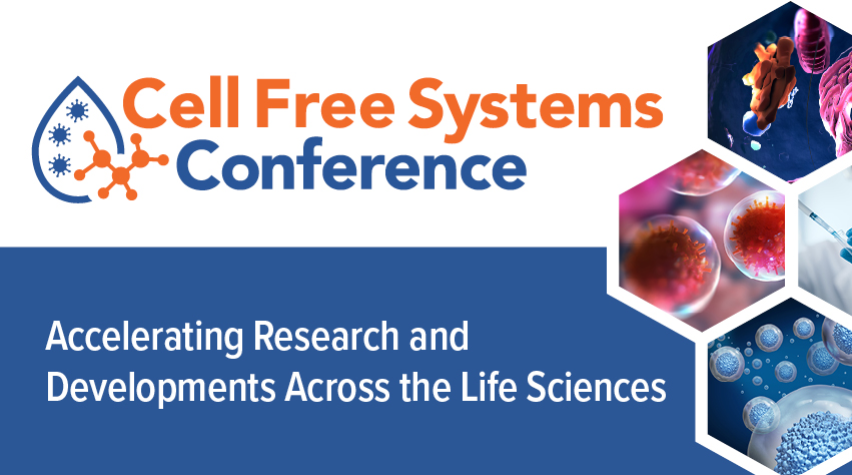
The 2nd Cell Free Systems Conference will be held November 15–17, 2023 in Austin, Texas. Organized by AIChE’s Society for Biological Engineering (SBE), the conference will provide a broad overview of the research and industrial applications in the field, including diagnostics, protein engineering, manufacturing, circuit design, synthetic cells, high-throughput characterization, fundamental research into chemistry of life, and other areas.
We asked several of the featured speakers about what sets cell-free systems apart from other areas of bioengineering, about career advice, advancements in the field, and more.
For the general audience, what distinguishes cell-free systems from other areas of bioengineering?
Bastian Vogeli: Cell-free systems differ from cell-based systems in being openly accessible (without cell membranes limiting access), which allows for a lot more engineering solutions to improve rate, titer, and turnover numbers.
Quentin Dudley: Cell-free systems are distinct in two ways. First they are a powerful set of tools that can be applied for biomanufacturing or to prototype traditional cell-based processes. Second they can be simplified biological entities that help understand fundamental biological questions that enable future engineering efforts.
What inspired you to do research in this field?
Simon Moore: The early-stage pioneering cell-free research of Professor Alan Scott and Dr. Charlie Roessner at Texas A&M in the 1970–90s.
Bastian Vogeli: I am fascinated by metabolism, and to truly understand it, we have to start building it ourselves. Cell-free biomanufacturing is the field trying to achieve that.
Are there any new developments, technologies, or applications of technologies in this field that you are particularly excited about?
Matthew Lux: I'm particularly excited about emerging work that explores operating regimes that are not feasible with cells but can be attained in cell-free systems simply by mixing different extracts or adding chemicals.
What advice would you give to students or young professionals thinking about a career in cell-free systems?
Ee-Been Goh: Cell-free systems have huge potential for real-world applications, and we need more talented people working to better understand cell-free platforms to make this technology successful.
Vincent Noireaux: Cell-free bioengineering is just at the beginning, and the potential and space for innovations is huge. It’s important to have a strong basis in biochemistry and molecular biology; likewise, omics and bioinformatics are increasingly important.
About SBE
Established in 2004, the Society for Biological Engineering is a technological community for engineers and applied scientists integrating biology with engineering. Members of SBE come from a broad spectrum of industries and disciplines and share in SBE’s mission of realizing the benefits of bioprocessing, biomedical, and biomolecular applications. Learn more about SBE.


